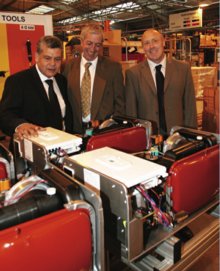Glow-worm works with local authority to improve heating systems



‘Red tape scrapping is welcome – but more policy changes are needed’
The CEO of heat pump manufacturer Aira UK has said the government’s new proposals to scrap planning red tape for the installation of heat pumps in the UK will be a big breakthrough for the industry and consumers – but more policy changes are needed.
New procurement rules for NHS suppliers
New procurement rules mean NHS suppliers will need to demonstrate their green credentials so the NHS can achieve its target of becoming net zero for directly-controlled emissions by 2040, with an ambition to reach an 80% reduction in its carbon emissions between 2028 to 2032.